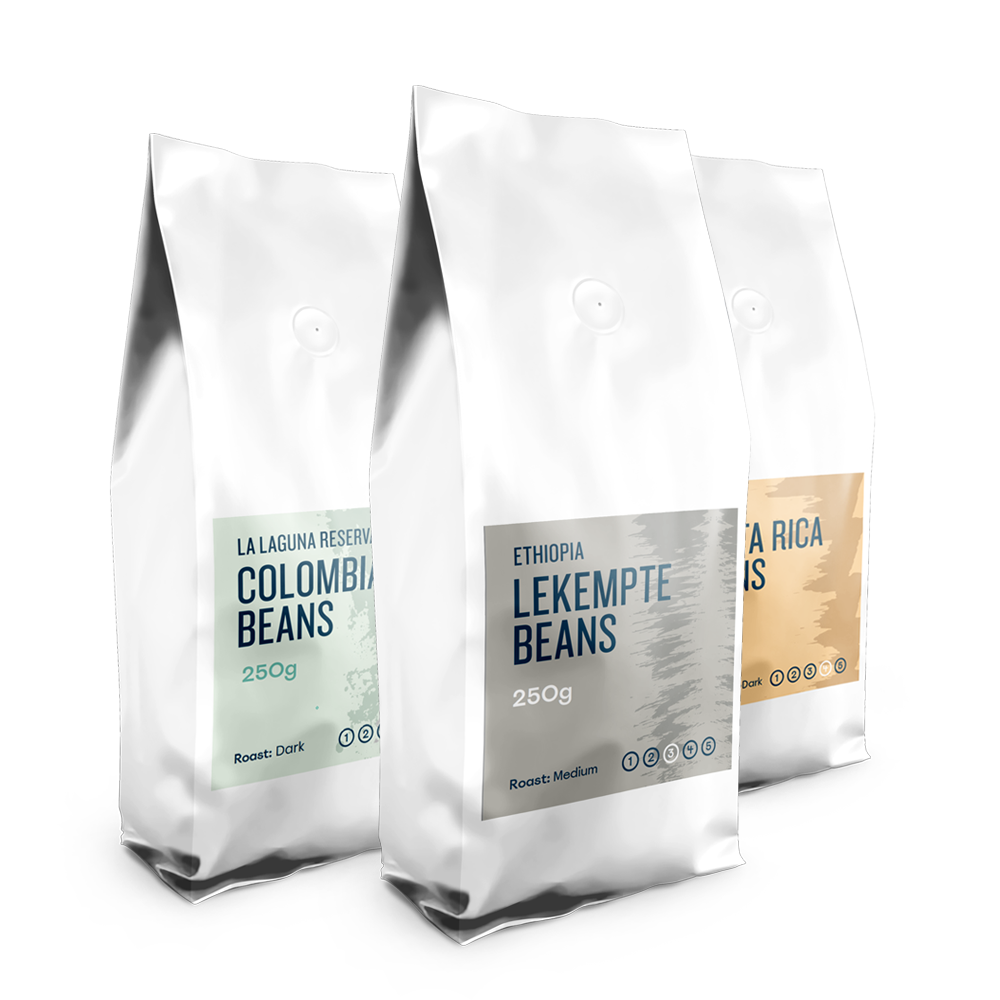Our blog
Why pre-ground coffee doesn’t cut it for quality
If you are new to the home barista game, you might have never bought actual coffee beans before. If you have only ever experienced pre-ground coffee, you and your fellow coffee drinkers will be in for a pleasant surprise when you make the switch to beans.
I’m sometimes asked why it is that coffee beans taste so much better than pre-ground coffee. The main reason is to do with the action of oxygen.
How oxygen kills pre-ground coffee
I often tell new customers that the three biggest enemies to a quality cup of coffee are heat, cold and oxygen. Oxidisation is where oxygen in the air reacts with the many oils in a coffee bean and creates new compounds. This spoils the flavour of the coffee.
The trick is protecting these oils from the oxygen for as long as possible and the best source of protection is within the bean itself. As soon as you break into that barrier, the clock is ticking. You have around 15 minutes before the bulk of the flavour and aroma is lost forever. By buying coffee beans instead of pre-ground coffee, you can release those flavours just before brewing your coffee. The difference will stun you.
Another disadvantage of pre-ground coffee is that it soaks up moisture from the surrounding air. Any compounds dissolved in that water will then contaminate the flavour of the coffee. The longer the grind has been exposed to the air, the more danger there is of overpowering what’s left of the flavour with airborne odours.
Why grind at all?
If protecting the coffee oils is such a big deal when it comes to pouring a delicious brew, a natural question is: why grind coffee at all? In fact, boiling entire coffee beans was popular a long time ago but is rarely done now.
The reason is to do with the extraction process. In order to taste those heavenly flavours, the oils need to dissolve into water (coffee oils are water soluble). The greater the surface area, the quicker and more completely that extraction happens. Grinding anything increases its surface area, hence the raison d’etre of ground coffee.
An under-extracted brew will tend to taste sour (acidic) and will not have picked up some of the darker notes.
Coarse vs fine grinds
Following the logic above, you will understand how the flavour in fine coffee grinds is released very quickly and also contains a richer blend of bright and dark notes. However, over-extracted coffee will include tannins, giving the drink a bitter taste.
Balancing the speed and completeness of extraction is what the art of the barista is all about. A fine grind like an espresso or Turkish coffee grind will require minimal dwell time (contact with the water). A coarse grind, like the pre-ground coffee you would put into your French press, will need to sit for longer for the same level of extraction (there are other factors involved but this is a good rule of thumb).
Of course, you can only experiment with the coarseness of your grind if you start with coffee beans in the first place. So, this is another great reason to give up the pre-ground coffee and back the bean!
Select from our range of speciality coffees
Have you thought about what's going to go inside your coffee machine? We only stock SCA-graded speciality coffees so you're guaranteed a superior flavour, whether you know the type of coffee you like or you're still enjoying the journey of discovery.
At Cartwright Coffee, we pull out all the stops to keep our home baristas satisfied. For example, our coffees are handpicked for a consistently even roast – and a more pleasant flavour.
